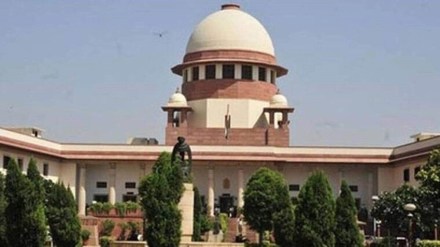The Supreme Court on Thursday asked if the Maharashtra Assembly Speaker’s decision to hold state chief minister Eknath Shinde’s faction as the “real Shiv Sena” by applying the test of “legislative majority” is tenable, raising a question that lies at the heart of an intriguing legal-political tussle ahead of the 2024 Lok Sabha elections.
The three-judge bench, led by Chief Justice of India DY Chandrachud, heard the Uddhav Sena’s challenge against the Speaker’s decision not to disqualify members of the Eknath Shinde-led group. The court queried, “Isn’t the Speaker relying on a legislative majority to decide the real Shiv Sena, not contrary to our judgment?”, Live Law reported.
In the Supreme Court’s May 2023 judgment, it was stated that in cases like the present one, assessing which group enjoys a majority in the legislature would be futile. The court emphasised that other tests, such as an evaluation of the majority in the organisational wings of the political party, an analysis of the provisions of the party constitution, or any other appropriate test, should be considered.
Also Read: Sena vs Sena verdict today: The dispute and possible scenarios – EXPLAINED
On January 10, the Speaker held that Eknath Shinde’s faction was the real Shiv Sena and refused to disqualify any member from either faction.
During the hearing on Thursday, the Supreme Court asked for Shinde faction’s response to Uddhav Thackeray faction’s petition by April 1. The court fixed the matter for a final hearing in the week commencing from April 8, clarifying that the aspect of maintainability would be dealt with first.
Senior Advocate Kapil Sibal, representing Uddhav faction, requested an urgent disposal of the matter, citing the scheduled Assembly polls in October-November 2024. Senior Advocate Harish Salve, for the Shinde faction, claimed that Uddhav faction had submitted fake, fabricated, and forged documents before the Speaker. In response, the bench summoned all original documents related to the disqualification case from the Speaker’s chamber.
The Shiv Sena suffered a vertical split in June 2022 when Shinde and 38 other legislators walked out of the party then led by Uddhav Thackeray and joined hands with the Bharatiya Janata Party (BJP) to form the government. The rebellion brought down the then Maha Vikas Aghadi (MVA) government.
Also Read: Uddhav Thackeray, Speaker spar as Maharashtra awaits Sena vs Sena case verdict
In the petition filed through Thackeray-loyalist and legislator Sunil Prabhu, the UBT group called Narwekar’s January 10 order a “colourable” (it probably meant coloured) exercise of power based on “extraneous and irrelevant” considerations. It added that such a conclusion was “erroneous” and went against the anti-defection law and the top court’s judgment of May last year directing the Speaker not to solely base its decision on the group possessing majority in the House by distinguishing between “legislative party” and “political party”.
